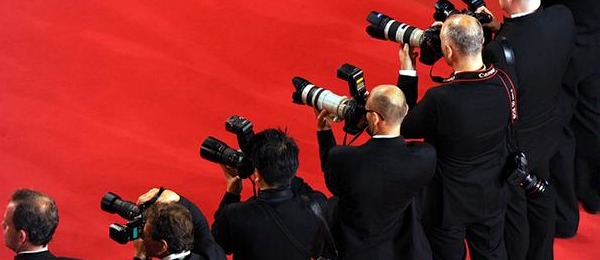Cannes—From an Invisible Producer’s Perspective

Film festivals are filmmaker-centric and they honor and recognize the creative. The implication is that producers are not part of that creative magic. Yet I would argue that we are the ones who hold the wands.
When asked by Film Independent to write about my experience at Cannes, I thought about describing how amazing it was to be part of such a prestigious festival filled with A-list celebrities and red carpets, or about dancing my stress out to Robin Thicke live at the Gothe nightclub, or about how I got goosebumps while watching Mommy at the Palais and was moved to tears during its standing ovation. While all of that happened, you can read about that sort of experience anywhere. The more honest approach to this piece is to talk about how I experienced the festival as a producer.
It was a surreal experience. One where during the course of 10 days, I felt like Marty McFly in Back to Future, fading from a photograph as the festival progressed. I slowly began to realize that producers are invisible, sometimes in general, but most specifically on the festival circuit. With a festival as beautifully curated as Cannes, I did not expect this sort of feeling.
As producers, we know that it is not about us. That if we’ve done our jobs right, the spotlight is on the filmmaker, the talent, and a fantastic film. However, what producer doesn’t want to be acknowledged for their work?
Upon arriving in Cannes (still in disbelief that we had a film playing at the festival), my producing partner (Laura Smith) and I went to pick up our credentials, which came with the catalog for Critics’ Week. We quickly turned to our film’s page, excited to see it in print, but were met by the disappointment that no producers were credited in the printed catalog (or online). None. Not just for our film, but for all films playing at the festival. Credits included director, screenplay, cinematography, editing, production design, sound design, music, and cast. I had put two years of my life into this film and those who had spent as little as six weeks received recognition.

Perhaps I was extra sensitive because my film, It Follows, was an unusually challenging project for me, both mentally and emotionally. My mother had died just a few months before production began and digging deep in to the trenches of filmmaking was the last thing I was prepared for. However, I did what all producers do. I put the film first and pushed forward.
As I faded from view in Cannes, I wondered what the future of independent cinema would look like without producers? Would we simply be replaced by financiers, agents or our filmmakers? What if producers collectively said this is too hard, there is no money, and there is also no recognition, and it’s just not worth it anymore. If producers were obsolete, would anyone notice?
As the festival continued, Laura and I found ways to shake off the invisibility cloaks. We danced and mingled and carried on amidst the excitement of the festival. We were greeted by people who had seen and loved the film and each day woke up to reviews filled with praise. After all the blood, sweat, and tears we had poured into the film, it was a thrill to see that it was being received so positively and that our filmmaker was having his moment in the sun.
Yet despite our efforts to not let the lack of inclusion dampen our spirits, that invisibility kept rising up. In attending our film’s first Q&A, which was out of town, the festival provided a car to get the film team to the theater. However, we came to learn that the ‘film team’ did not encompass the producers and we would have to catch a cab on our own dime. Soon we began to feel like the third wheel tagging along on a date to the prom. We were an essential cog of the movie-making machine during production and getting the film ready to screen, which was a feat in itself, yet the message we kept getting was that our contributions were somewhat less valuable.
Ultimately, producers are not looking for fame or attention, rather we are simply looking for a nod, an acknowledgement that we have made a contribution to cinema. This type of recognition fills us up so that after we have been drained by the trials of making a film, we can have the strength and determination to begin another.
Small gestures by festivals, such as including our earned credits in print, curating organized events so that we can meet our fellow producers, and encouraging us to have our own creative voice, would forge a stronger more cohesive community and in turn, a more sustainable industry.
So why am I a producer? This is a question I’m still trying to answer. I can say that it brings me great joy to be the person working side by side with a filmmaker, taking the seed of an idea and turning it into a moving image in which others watching will respond with joy, heartbreak, or in the case of It Follows, terror.
Perhaps the existential air of France was affecting me–I wondered why we do it, even in the void of recognition. And we will continue to. Perhaps like the often-ignored middle child, producers continue to make movies with the hopes of being seen.
So, what if producers were obsolete? The funny thing is, because we are producers, we would never let that happen.
Rebecca Green / producer / guest blogger
